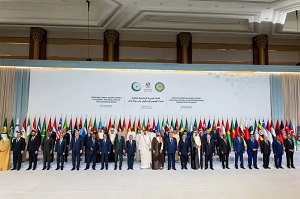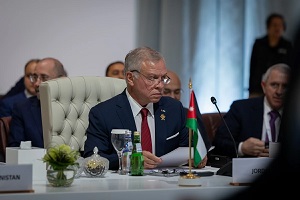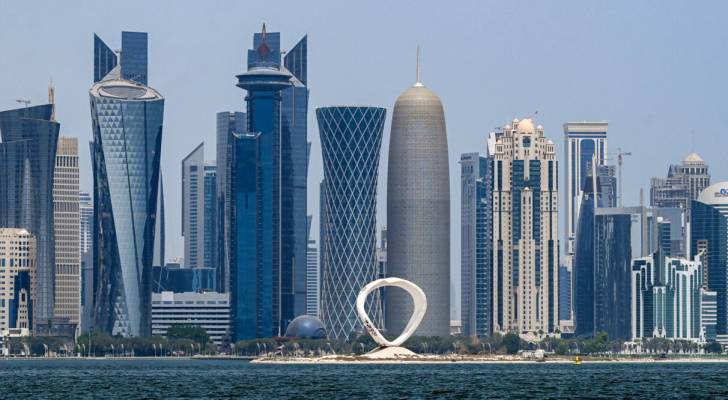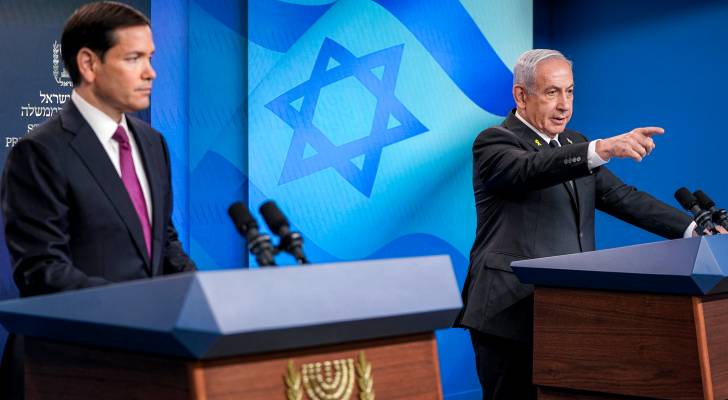Session Discusses Green Economy Sector under Economic Modernisation Vision
The Jordan Times
AMMAN — Sectorial working sessions for the second executive programme (2026–2029) of the Economic Modernisation Vision (EMV) continued at the Prime Minister’s on Saturday, where a dedicated session was on the green economy sector within the sustainable environment engine.
Minister of Environment Ayman Suleiman outlined the strategic vision for Jordan’s green economy, aiming to position green growth as a key pillar in climate change mitigation and adaptation.
He stressed the urgency of reducing carbon emissions across all sectors and accelerating the transition to a sustainable system, the Jordan News Agency, Petra, reported.
The strategy involves expanding the share of renewable energy, improving consumption efficiency, and developing sustainable public transport.
It also seeks to boost industrial competitiveness through circular economy models and transform the waste sector into a productive, economically viable field by increasing recycling rates and sustainable treatment.
Suleiman also stressed the need to protect biodiversity, create green jobs, promote innovation in environmental sectors, and enhance the legislative framework to support green investment and cross-sectorial integration.
Key initiatives presented include strengthening governance for green growth, promoting the circular economy, connecting skilled talent to green job opportunities, and fostering innovation and green technologies. The minister highlighted Jordan’s ambition to become a regional leader in this field.
The session also reviewed the launch of a national research platform on climate change, and plans to develop eco-tourism and agri-tourism. Other projects include the creation of green urban spaces, integration of environmental elements in land use planning, and promotion of green building practices.
Suleiman discussed improving national industries’ readiness for low-carbon exports and advancing a sustainable blue economy. Notable achievements include renewable energy contributing 27 per cent of total electricity by end-2024, and Jordan ranking first in climate action in the Greater Middle East region.
Further developments include the completion of Shobak’s transfer station, improved waste collection routes, and the construction of an organic fertiliser plant.
Additionally, the Al Aqidar landfill was converted into a sanitary landfill, while nature reserves such as Al Maawa and Al Yarmouk underwent rehabilitation.
Other accomplishments include technical support for 110 industrial facilities, installation of 137 solar systems in agriculture, and construction of 114 rooftop rainwater harvesting systems in Tafila, as well as Shobak also received 42 water harvesting units.
Suleiman noted the adoption of new environmental policies and frameworks, including the 2023 battery waste management instructions, an emergency and community plan for Al Aqidar, and the national strategy for health sector climate adaptation.
A digital platform supporting industrial solidarity and the circular economy was launched in collaboration with the Amman Chamber of Industry.
The ministry also initiated environmental solutions to tackle plastic pollution and published studies on textile sector waste management, now featured on the invest.jo platform.
Impact indicators show progress: Jordan advanced from 81st to 77th in the Global Environmental Performance Index between 2022 and 2024.
The number of waste management laws increased from 15 to 16, and landfills connected to the national waste monitoring system rose from 5 to 11.
Tourism Minister Emad Hijazin underscored the importance of integrating the green economy into tourism sites, both public and private.
He cited opportunities in eco-agricultural tourism, benefiting from the Royal Society for the Conservation of Nature’s expertise.
Agriculture Minister Saeb Khreisat called for institutional collaboration between sectors to further develop eco-agricultural tourism, emphasising the need to formalise these joint efforts, Petra reported.
Latest News
-
 Arab-Islamic Summit issues final statement, condemns Israeli attack on Qatar, calls for accountability
Arab-Islamic Summit issues final statement, condemns Israeli attack on Qatar, calls for accountability
-
 King delivers Jordan's address at Emergency Arab-Islamic Summit in Doha
King delivers Jordan's address at Emergency Arab-Islamic Summit in Doha
-
 Leaders unite against ‘Israeli’ strike on Qatar at emergency Arab-Islamic Summit
Leaders unite against ‘Israeli’ strike on Qatar at emergency Arab-Islamic Summit
-
 Gaza’s death toll rises to 64,905: Health Ministry
Gaza’s death toll rises to 64,905: Health Ministry
-
 Rubio promises Netanyahu “unwavering support” to ‘Israel’ in Gaza goals
Rubio promises Netanyahu “unwavering support” to ‘Israel’ in Gaza goals